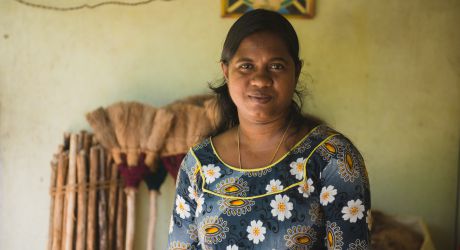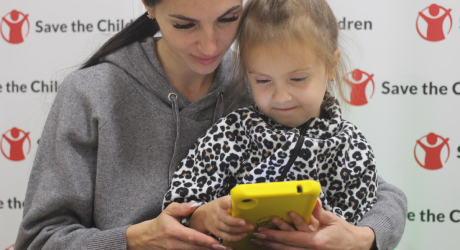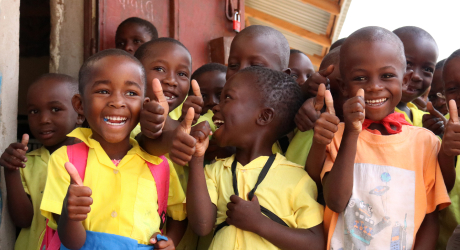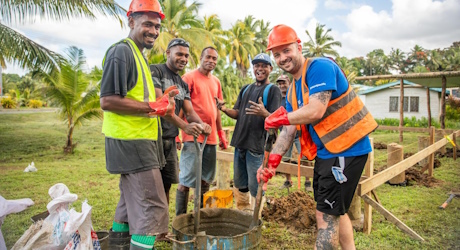Footprints Project
Since 2005, travelers like you have helped us change the world through micro-donations.

-
A total of
10252
Travelers
-
donated
$33030.43
(100% funded) -
to help improve
Equality
-
in
Sri Lanka
Project Background
This project’s goal is to improve the economic well-being of young Sri Lankan women and girls through decent employment and sustainable livelihoods.
Skill development is not considered a priority for girls in the North and Eastern provinces, which were among the worst affected populations during the country’s civil war. Consequently, there are limited expectations for young women outside of marriage. Girls experience gender inequality, gender based discrimination and are susceptible to early marriage, human trafficking and sexual exploitation.
Drawing on the skilled labour demands of businesses in the area, this project provides men and women with decent employment and youth with pathways linking them to job placements or entrepreneurship training and self-employment opportunities.

Key Project Outcomes
- 360 young women and 200 young men participated in technical and soft skills training.
- 491 students completed training (262 women and 229 men), giving them skills to pursue a livelihood.
- Training was based on a labour market analysis which identified 21 occupational skills in demand from local employers.
- Training courses were identified and adapted to deliver skills required by local employers. Courses offered were in alignment with the education background and capacities of vulnerable youth and included the following: tailoring, education, hairdressing and beauty, mechanics, electrics, ICT and hospitality.
- 100 young women received entrepreneurship training and seed funding for business start-ups.
- 5 gender sensitive career guidance programs were developed to assist young women develop their career objectives, with the support of relevant Sri Lankan government departments, councils and colleges.
- Local employers participated in gender equality awareness seminars, gaining an awareness of the issues affecting young women’s experience of the workplace.
Program Participants
- 12 trainees from remote areas were provided with free accommodation close to the training center to allow them to participate in the program.
- 263 trainees who had difficulty paying for transport to and from the training centres were given a travel allowance to cover their costs to allow them to participate in the program.
- 4 students with disabilities were accommodated and participated in the training.
- Participants were from a range of ethnic, cultural and religious groups, including Muslim, Sinhalese and Tamil groups.

Project Challenges
The project has been adjusted over the years to suit Sri Lankan girls and women’s preference for working on their own enterprises rather than being employed in hotels away from home, which is stigmatised in local communities.
To address this stigma, Plan worked with parents, community leaders and hotel owners, bringing people to see the hotel work environment and to meet successful female hotel employees. This was a useful way to begin a conversation on gender norms and stereotypes, but it will take time to address deeply entrenched community perceptions.
Local Partnerships
Plan International worked in collaboration with the Government of Sri Lanka, the National Vocational Training Authority, the Government Technical College, the National Industrial Authority and the National Youth Service Council, the Rural Development Society and the Women’s Rural Development Society.
The private sector were engaged in the program initially through the digital Market Scan, which identified gaps of skilled workers in various sectors and helped match employers with employees. Private sector participation in career guidance resulted in enhanced community awareness about the nature of job prospects in the market, particularly for young women.

Monakaran studying her ICT course.
Case Study: Monakaran, a Program Trainee
Monakaran, a trainee in the program, says, “I got married when I was 21 years old and a year later my husband died from an accident, leaving me with my 2 year old child and my parents… I was helpless. I couldn’t make decisions by myself, the future looked questionable. However, I thought that a proper profession was important to save my child’s future”.
When Monakaran heard that Plan International was working on a project for people just like her, she signed up for the career guidance program.
She has now completed 6 months of her Information and Communication Technology (ICT) Technician course and is about to start paid on the job training at the Department of Education.
“I’m keen to continue my work at the Education Department after the end of the training” Monakaran says. “The in-house trainings provided me with confidence and energy to build my career and to be a proud female heading the family”.
Traveling soon? When you buy travel insurance with us, you can make a contribution towards a cause you care about.
Get a quote






